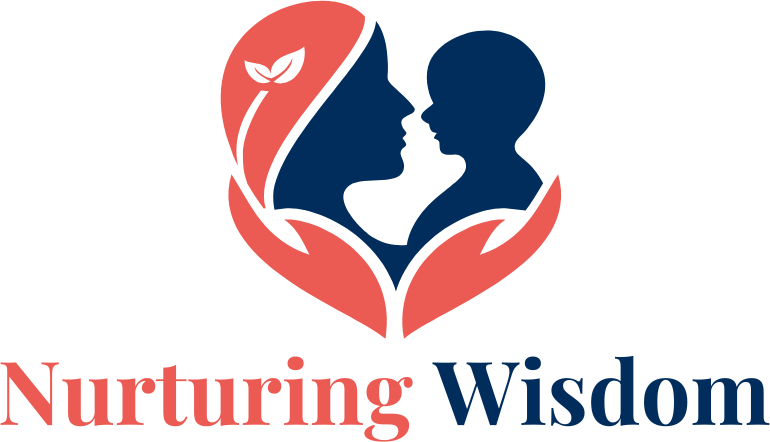Understanding the Journey of Extended Breastfeeding
Embarking on a journey of extended breastfeeding can often feel like a daunting task, fraught with hearsay and differing opinions. However, when armed with factual information and real-life experiences, it can become a comforting and rewarding experience for both the mother and the baby. In this article, we discuss some essential extended breastfeeding tips, share personal stories from mothers who have walked this path, and provide tips for maintaining your milk supply.
Extended Breastfeeding: Why It Matters
Extended breastfeeding, often defined as breastfeeding beyond the first year of the baby’s life, is deeply rooted in personal choice, societal norms, and a child’s individual needs. The benefits extend beyond providing nutrition and play an integral role in nurturing an emotional bond between the mother and the baby. According to the Cleveland Clinic, extended breastfeeding supports the baby’s immune system and can provide a significant proportion of the child’s nutritional requirements.
Top Extended Breastfeeding Tips
Navigating extended breastfeeding requires embracing routine changes, getting comfortable with breastfeeding in public, and ensuring that the mother’s comfort is prioritized. Here are some tips for a smoother experience:
– Develop a flexible routine: Extended breastfeeding often involves feeding on demand. Being flexible can make the process less stressful.
– Comfort is king: Choose comfortable nursing bras and consider using a nursing pillow for added support.
– Stay hydrated: Keeping yourself hydrated is crucial for maintaining milk supply. Ensure you drink enough water during the day to compensate for the fluid loss.
– Take care of your nutrition: Just like in pregnancy, your body needs additional nutrition during breastfeeding. Maintain a balanced diet to keep both you and your baby healthy.
Maintaining Your Milk Supply
One of the biggest concerns breastfeeding mothers have is maintaining their milk supply. While it’s normal for your milk supply to fluctuate, continuous drop could signify an issue and warrant a consultation with a lactation consultant. Several methods can help in sustaining and increasing your milk supply. La Leche League USA recommends frequent nursing and ensuring the baby fully drains the milk in the breasts, as full breasts can signal the body to slow down milk production.
Personal Stories
Stories from mothers who have experienced extended breastfeeding can offer reassurance and inspiration. La Leche League UK shares a multitude of personal stories that highlight the individuality of each breastfeeding journey and how mothers have discovered their comfort zones through extended breastfeeding. These stories remind us that the choice and duration of breastfeeding are personal and should be respected.
Likewise, mothers who have relactated or induced lactation for adopting a baby have shared their experiences on La Leche League UK. These narratives underscore that breastfeeding journeys can have various paths, and each path, with its unique challenges and triumphs, deserves to be celebrated.
Baby’s Comfort: The Heart of the Matter
While there are numerous external factors that can impact the journey of extended breastfeeding, the key factor to remember is the baby’s comfort. As a mother, you instinctively know what comforts your baby. Whether it’s the closeness during feeding time, the routine, or the nutritional benefits, ensuring your baby is comfortable and happy is paramount.
Overcoming Extended Breastfeeding Challenges
Change is the only constant thing and, in the journey of extended breastfeeding, you may encounter hurdles. Sometimes the baby may not be willing to nurse, or societal pressures begin to weigh you down. Some may struggle with the constant demand, or have difficulties feeding outside of the home. In such situations, remember that you are not alone.
The first rule of thumb is to trust your instincts. As a mother, you understand your baby better than anyone. If a particular challenge persists, such as a drop in the milk supply, don’t hesitate to seek advice from a professional lactation consultant.
Breaking Societal Stereotypes
Another major barrier to extended breastfeeding is societal misinformation and bias. Misconceptions can create doubts in a mother’s mind about the need for extended nursing. The society that pushes for breastfeeding might tel you that nursing should only go up to a certain age. Ignore these uninformed opinions and remember that extended nursing is recommended by respectable health organizations like UNICEF and also backed by clinical research.
The Emotional bond fostered by Nursing
Breastfeeding is more than just nutrition. In fact, it creates a unique bond between mother and child that should not be undermined. Extended breastfeeding deepens this bond as it presents more opportunities for mother and baby to snuggle, sync heartbeats, and share warmth and love.
The Impact of Stress on Milk Supply
In the fast-paced world we live in, stress and anxiety are common, and can have a significant impact on milk production. Stress can create tension in the body which could lead to decreased milk supply. Seek to keep your stress levels in check to encourage a healthy milk flow. This might involve finding effective ways to manage everyday stressors, getting restorative sleep, or seeking support from families and friends .
Leveraging Pumping to Supplement Breastfeeding
Pumping breast milk can be a blessing for mothers who are not available throughout the day to nurse. It allows the baby to still receive the benefits of breast milk even when you are absent. You can find comprehensive pumping guidelines at UpToDate, including when and how often to pump, and how to store and use what you have pumped.
Remember, pumping breast milk is an art that needs to be learned. If you have problems pumping, don’t hesitate to seek help from a lactation consultant, other mothers, or breastfeeding support groups.
Extended Breastfeeding: The Ultimate Act of Love
In conclusion, extended breastfeeding is more than just providing nutrition to your baby. It goes beyond that, promoting emotional bonding, providing immunological benefits, and fostering a strong mother-child relationship.
It’s a beautiful journey that should be embraced. While it may have its share of challenges, remember that a support system exists: lactation consultants, health practitioners, online resources, and support groups, who can offer you the guidance and assistance needed on this path.

